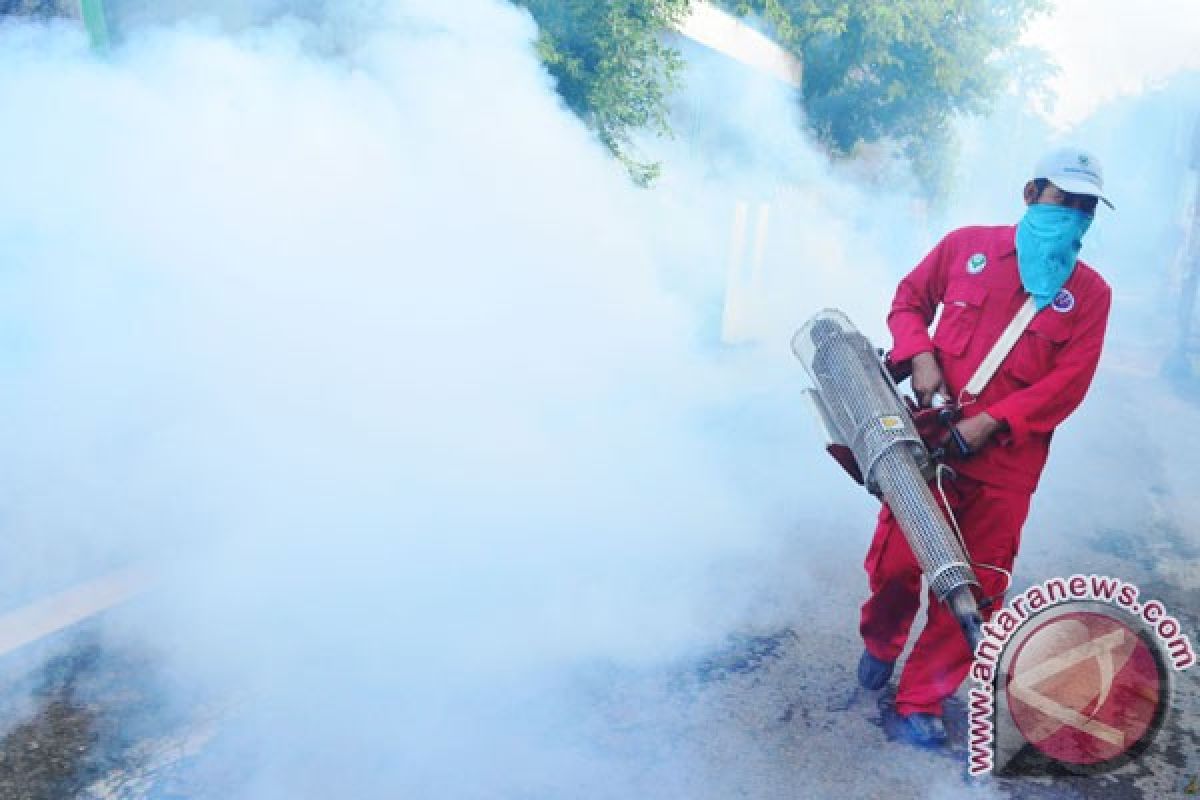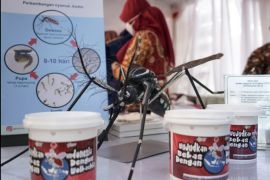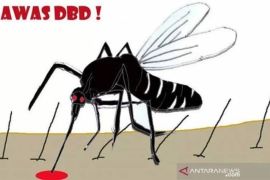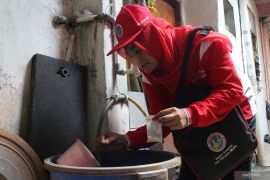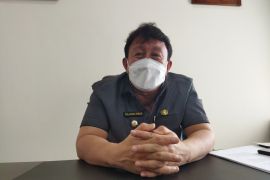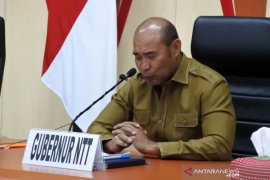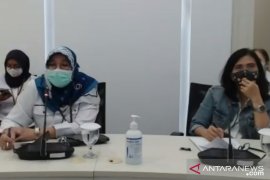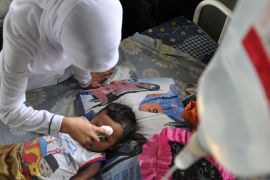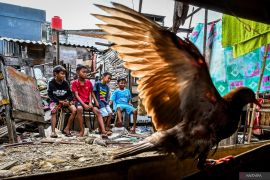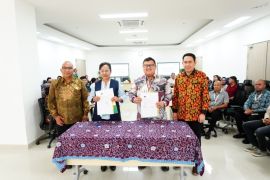... we can break the chain of the deadly disease."Jakarta (ANTARA News) - Despite the government having urged people in various provinces to be wary of dengue fever, a viral disease caused by the Aedes Aegypti mosquito, the number of cases continue to soar in several Indonesian regions.
Dengue cases in Indonesia, a tropical country with a fast-growing population, increase from time to time, in spite of the struggle to win the battle against the disease during the rainy season this year.
Since January 2016, dengue cases were reported to have occurred in the provinces of Central Java, West Java, Bali, South Kalimantan, West Nusa Tenggara, and Banten, among other places.
In Gunung Kidul district, the Special Region of Yogyakarta, the number of dengue fever cases continues to rise, and the figure has now reached 71.
Gunung Kidul Health Office Chief Agus Prihastoro remarked on Tuesday that the number of dengue cases since January 2016 has increased two-fold as compared to only 24 cases recorded in December 2015.
"However, the number of cases in Gunung Kidul is less than that in other areas such as Kulon Progo and Bantul districts," Prihastoro remarked.
He expressed hope that the outbreak would soon be brought under control.
In the meantime, Central Java Health Office is focusing on reducing and preventing the number of cases of dengue hemorrhagic fever, which tends to increase during every rainy season.
"For prevention, we are trying to eradicate mosquito breeding grounds by burying, draining, and hoarding the scrap items that can retain water since fogging is now no longer able to eradicate mosquito larvae," Central Java Health Office Chief Yulianto Prabowo remarked in Semarang on Monday.
According to Prabowo, dengue fever usually peaks in January and February when the cases spread almost evenly in other areas.
Without detailing the number of dengue patients in Central Java, Prabowo stated that based on the indicators of dengue cases in the province, the average is still above 20-40 cases per 100 thousand population, whereas mortality is still above one percent of all cases of dengue.
Prabowo revealed that the current types of mosquitoes that transmit dengue fever have mutated and become resistant to insecticides used in fogging.
"Based on the results of research conducted in several areas, including in the city of Semarang, the insecticides used in fogging are no longer effective against mosquitoes, so we had to look for another type, which is more effective," he affirmed.
In West Java, a total of 285 dengue patients have been admitted to Cianjur Hospital since January, according to the hospitals spokesman, Dr Cecep Juhana.
He revealed that patients belonging to all age groups ranging from toddlers to senior citizens had reportedly contracted dengue fever in West Java and had received treatment in the hospital for three days to a week.
In Sukabumi district, West Java, two dengue patients were reported to have died since January 2016.
Dengue cases in Tabanan district, Bali province, also increased during this rainy season, according to Deputy Director of Services and Quality Control of Tabanan Hospital, Dr Ni Luh Gede Sukardiasih.
Sukardiasih remarked that during the month of January 2016, as many as 258 patients were treated for dengue fever, an increase compared to only 216 patients recorded over the same month in the previous year.
"Of the total 258 dengue patients treated at the Tabanan Hospital, 288 are adults and 30 are children," Sukardiasih noted in Tabanan on Tuesday.
In Banjarbaru city, South Kalimantan, some 107 people were reported to have suffered from dengue fever since January 2016, while 208 people had contracted the disease in Mataram, West Nusa Tenggara.
In Lebak district, Banten province, nine sub-districts have been declared dengue endemic areas, due to the low level of public awareness of keeping the environment clean.
"Since January until this day, some 103 dengue patients have been admitted to Dr Adjidarmo Public Hospital in Rangkasbitung, and three of them have died of the disease," dr Firman Rahmutallah, the head of Communicable Diseases Eradication and Prevention of the Lebak District Health Office, stated on Tuesday.
Rahmutallah noted that dengue cases continued to surface in Lebak district following an increase in rainfall in the area, so the people have been reminded to remain vigilant against the outbreak of the disease.
In order to break the chain of dengue transmission, he said the local community had been called on to revive the tradition of mutual assistance by conducting an environmental cleanliness movement, such as burying, draining, and hoarding (3-M), in addition to eradicating the aedes aegypti mosquitos breeding grounds.
"We believe that through the environmental cleanliness movement and the eradication of mosquito breeding grounds, we can break the chain of the deadly disease," he noted.
Rahmutallah explained that most of the dengue patients lived in densely populated settlement areas such as Rangkasbitung, Cibadak, Maja, Warunggunung, Malingping, Banjarsari, Cipanas, and Kalanganyar.
Therefore, he has urged the local community to immediately rush the people affected by dengue fever to the nearby hospital and health centers.
"We hope that when someone has been suffering from fever for three days, he or she would be quickly rushed to a nearby hospital or community health center," Rahmutallah remarked.
He pointed out that as some areas of Lebak district still continued to experience rainfall, the cases of dengue fever had increased sharply compared to those recorded in the previous years.
(Uu.O001/INE/KR-BSR)
Reporter: Otniel Tamindael
Editor: Priyambodo RH
Copyright © ANTARA 2016
